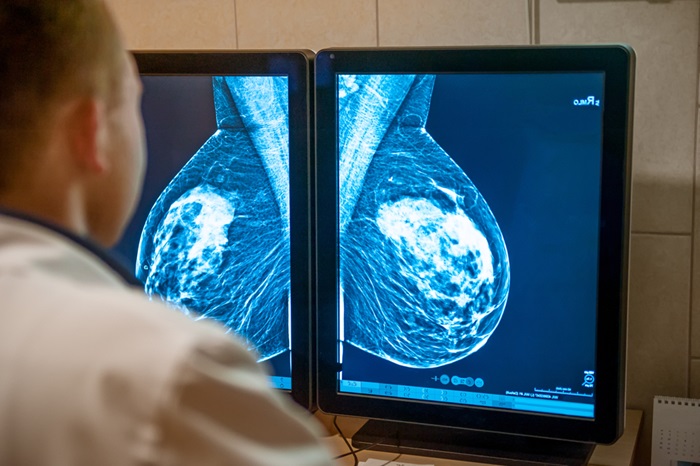AI Detects More Breast Cancers with Fewer False Positives
Posted on 05 Jun 2024
Mammography is essential for reducing breast cancer mortality but is associated with risks of false-positive results. Additionally, population-based mammography screening imposes a significant workload on radiologists who must interpret a large number of mammograms, most of which do not require patient recall. The workload increases further when screening programs include double reading to enhance cancer detection rates and reduce false positives. In recent years, the integration of artificial intelligence (AI) systems in screening has been explored for its potential to boost screening accuracy and efficiency. By triaging likely normal results and providing decision support, AI can significantly reduce the burden for radiologists. Now, in a new study, breast radiologists have demonstrated the use of AI for enhancing breast cancer screening performance and lowering the incidence of false-positive findings.
The retrospective study by researchers at the University of Copenhagen (Copenhagen, Denmark) evaluated changes in workload and screening outcomes before and after the implementation of AI. They compared two groups of women aged 50 to 69 who underwent biennial mammography screening in Denmark. In the first group, mammograms were read by two radiologists before AI implementation from October 2020 to November 2021. In the second group, from November 2021 to October 2022, mammograms were initially analyzed by AI.

Mammograms identified by AI as likely normal underwent a single-read by one of 19 specialized full-time breast radiologists. Those not flagged as normal were subjected to a double-read by two radiologists with AI-assisted decision support. The AI system employed, trained via deep learning models, was designed to identify and assess suspicious lesions and calcifications. All women screened were followed for at least 180 days to confirm any findings of invasive cancers or ductal carcinoma in situ (DCIS) via needle biopsy or surgical specimens.
Overall, 60,751 women were screened without AI and 58,246 with the AI system. In the AI group, 66.9% (38,977) of screenings were single-reads, and 33.1% (19,269) were double-reads with AI support. The use of AI led to the detection of more breast cancers (0.82% vs. 0.70%) and a reduction in false-positive rates (1.63% vs. 2.39%) compared to non-AI screening. The recall rate in the AI-screened group dropped by 20.5%, and radiologists’ reading workload decreased by 33.4%. The positive predictive value of screenings using AI was also higher (33.5% vs. 22.5%). Additionally, a greater proportion of the invasive cancers detected in the AI group were 1 centimeter or smaller in size (44.93% vs. 36.60%). Further research is necessary to assess long-term outcomes and confirm that overdiagnosis does not increase with AI use. The results of the study were published on June 4, 2024 in Radiology, a journal of the Radiological Society of North America (RSNA).
"Radiologists typically have access to the women's previous screening mammograms, but the AI system does not," said Andreas D. Lauritzen, Ph.D., a post-doctoral student at the University of Copenhagen. "That's something we'd like to work on in the future."














